Karine Boucher never intended to set herself apart in a traditionally male-dominated trade. “I did what I wanted in life by pursuing my interests” she says.
As an only child to parents who worked at Pratt & Whitney on the South Shore of Montreal, Karine recalls that her parents were not exactly in agreeance with her choice of career when she decided to undertake studies in a vocational training program that would lead to a trade in the construction industry. “I’m very handy, and I fit the profile of someone who works in construction – I’m six feet tall. My father, who is an aircraft assembler, taught me a lot of things like how to install ceramic, demolition, and such. The summer I turned 18, I started my student job at Pratt & Whitney, which led me to fraternize with the plumbers. I became very interested in this trade. At the time, I was just about to finish my DCS. As I was very good in school, everyone thought I would be a doctor, or at least have some type of academic career.”
As soon as Karine finished CEGEP, she moved into a small apartment next to the École professionnelle de Saint-Hyacinthe to study in Plumbing and Heating, a program that takes 17 months to complete. “My parents tried to discourage me. My mother was worried that it would be hard for me in the construction industry.”
"I became very interested in this trade. At the time, I was just about to finish my DCS. As I was very good in school, everyone thought I would be a doctor, or at least have some type of academic career."
Training and Competitions
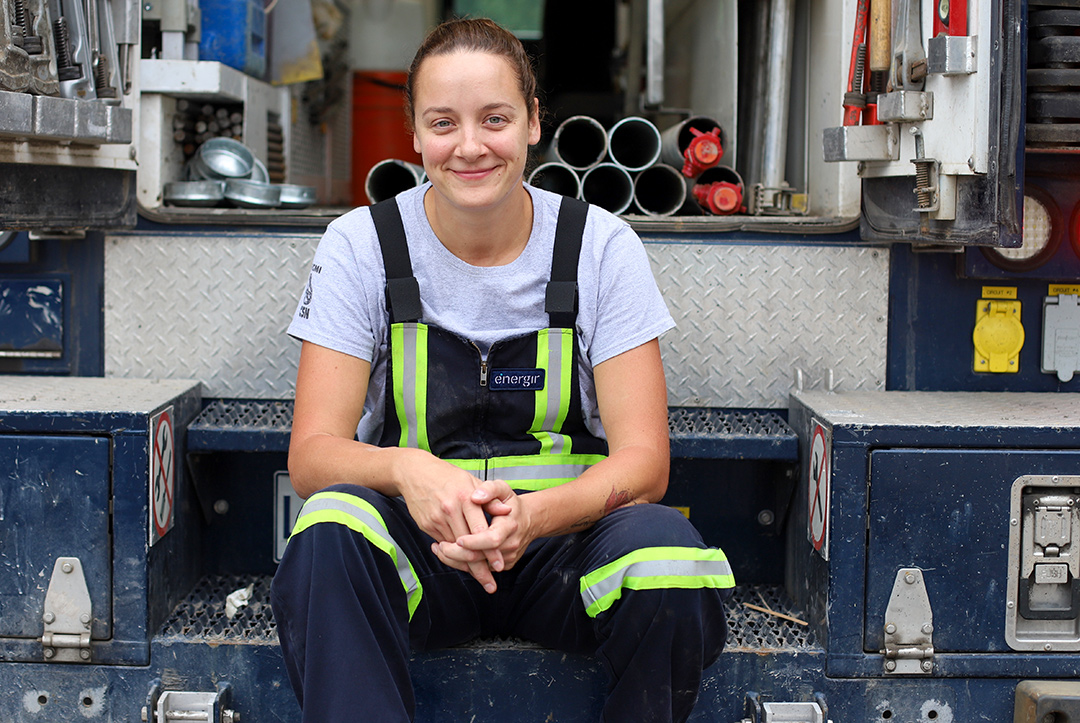 As soon as Karine Boucher finished CEGEP, she enrolled at the École professionnelle de Saint-Hyacinthe to study in Plumbing and Heating.
As soon as Karine Boucher finished CEGEP, she enrolled at the École professionnelle de Saint-Hyacinthe to study in Plumbing and Heating.Karine Boucher has great memories of her time studying in vocational training. “The teachers, activities and trainings were very reflective of the challenges of the job market. We were two girls in the beginning, but the other girl quickly abandoned the program. I successfully integrated into my group, I was respected and I performed very well, so well in fact that I was offered an internship in New Brunswick – a very enriching experience where I learned so much in a tangible way, for example in customer service.” That same year, she won a cash prize at the Hats Off to You! contest and her teachers suggested she participate at the Skills Competition. “I finished first in my school and then in my region. I then trained for the provincial competition at night and on weekends using different simulations. It was an adventure that I took very seriously.”
The competition site in Québec left a lasting impression on her. “The judges, the test project that required us to build a car with different pipes...It’s something I will remember for the rest of my life.”
"The teachers, activities and trainings were very reflective of the challenges of the job market. We were two girls in the beginning, but the other girl quickly abandoned the program. I successfully integrated into my group, I was respected and I performed very well, so well in fact that I was offered an internship in New Brunswick."
A Rough Start on the Job
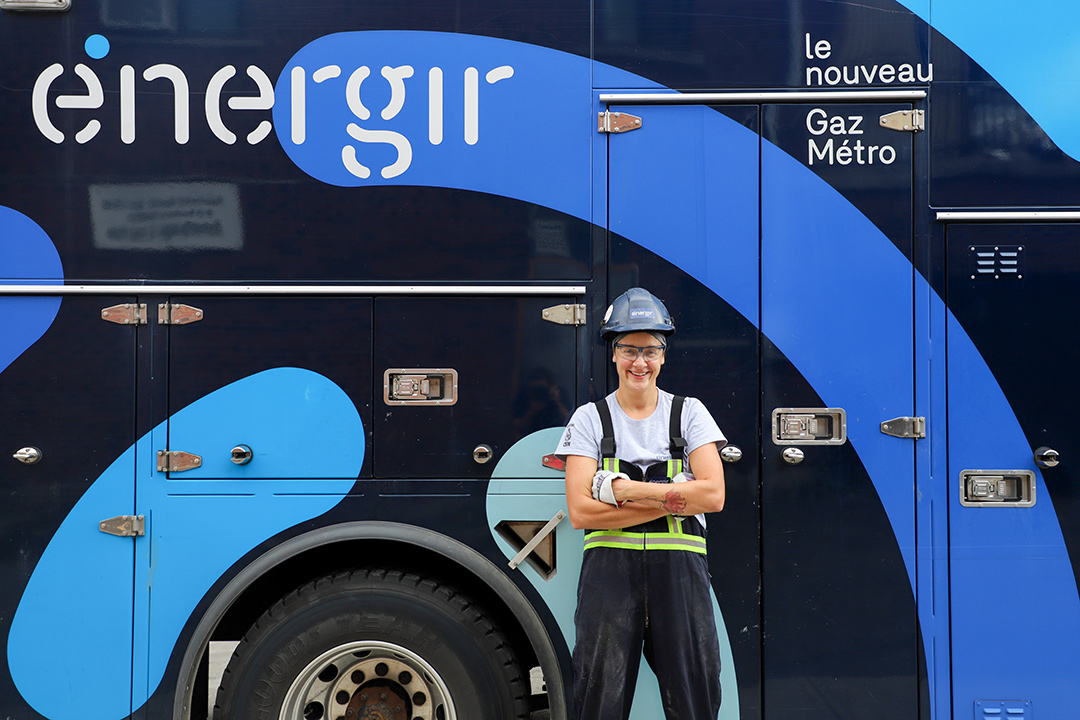 “The teachers, activities and trainings were very reflective of the challenges of the job market. (…) I successfully integrated into my group, I was respected and I performed very well, so well in fact that I was offered an internship in New Brunswick.” Karine Boucher
“The teachers, activities and trainings were very reflective of the challenges of the job market. (…) I successfully integrated into my group, I was respected and I performed very well, so well in fact that I was offered an internship in New Brunswick.” Karine BoucherKarine obtained her diploma in 2010 and was amongst the best students of her class. “I was 21, with my new diploma in hand, and I started working for a SME to accumulate my 150 hours required to become a first-year. We worked on the construction of the new Raymond-Lévesque library in Saint-Hubert, amongst other things.”
It did not take long for Karine to fall victim to bullying. “It was very hard for me to earn respect. I was a young, naive, well-behaved young woman who did not swear. I had to constantly prove myself, I had to develop a thick skin to protect myself. It was hard for me to be myself and it was exhausting.”
Constant threats from a colleague pushed her to eventually quit her job. She then worked as a clerk in a hardware store and started to reevaluate her career choice and thought about returning to school. She enrolled to study Civil Engineering in September 2011. But then she received a call from Gaz Métropolitain, known today as Énergir, for a job interview.
Constant threats from a colleague pushed her to eventually quit her job. She then worked as a clerk in a hardware store. (…) But then she received a call from Gaz Métropolitain, known today as Énergir, for a job interview.
A Good Job
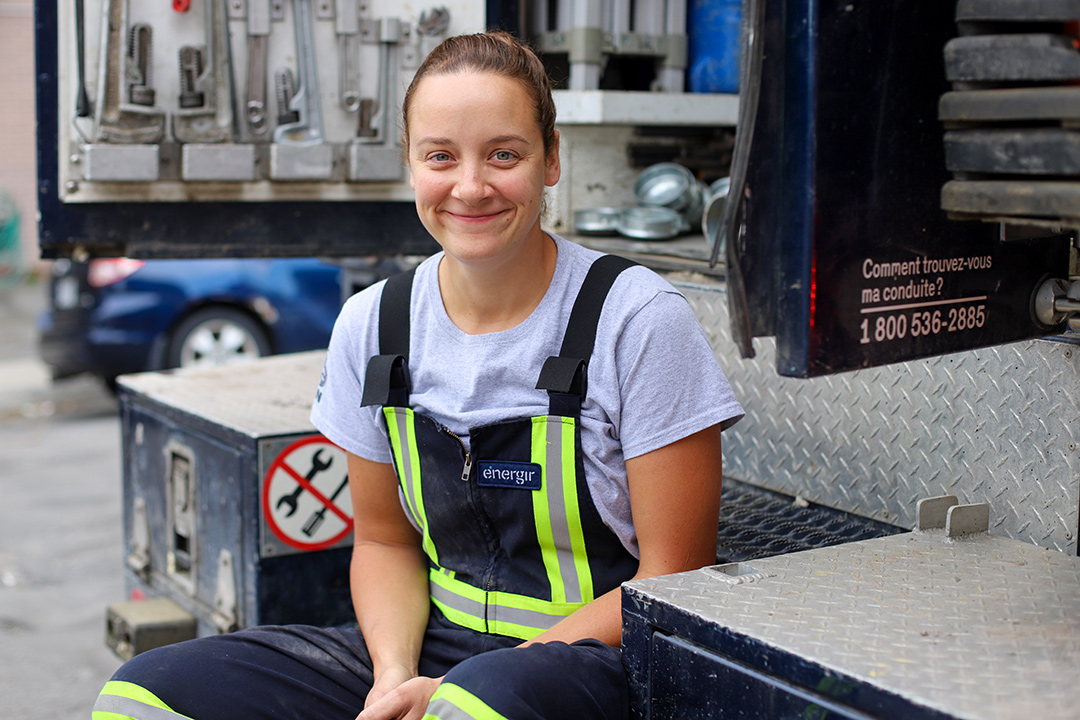 According to Karine Boucher, women will be susceptible to problems until traditionally male-dominated sectors obtain a critical mass of women.
According to Karine Boucher, women will be susceptible to problems until traditionally male-dominated sectors obtain a critical mass of women.This happened nine years ago. Since then, Karine admits that she pinches herself every morning before heading into work. She is happy that she can work a job she loves in a healthy environment with wonderful colleagues. “It’s a gift life has given me,” she says. Plumbing is often perceived as a messy job, where you are always on call and all you do is unblock toilets and kitchen sinks. While that can be true in some cases, it is so much more, according to Karine. “My job requires so many little tasks. There is so much to learn.
We get emergency calls, we do installations and inspections. Every day brings something different.” She started as a network technician in the operations division following a six-month in-house paid training and a few years later, Karine obtained her current position working in the connections department. “We work in teams of two, with a heavy machinery operator, and we travel all over Québec to install new distribution networks while condemning aging parts of older systems. My truck is provided, as well as my clothes and work boots, I have good insurance and most importantly, I can progress in a respectful work environment.”
Trade: Plumber
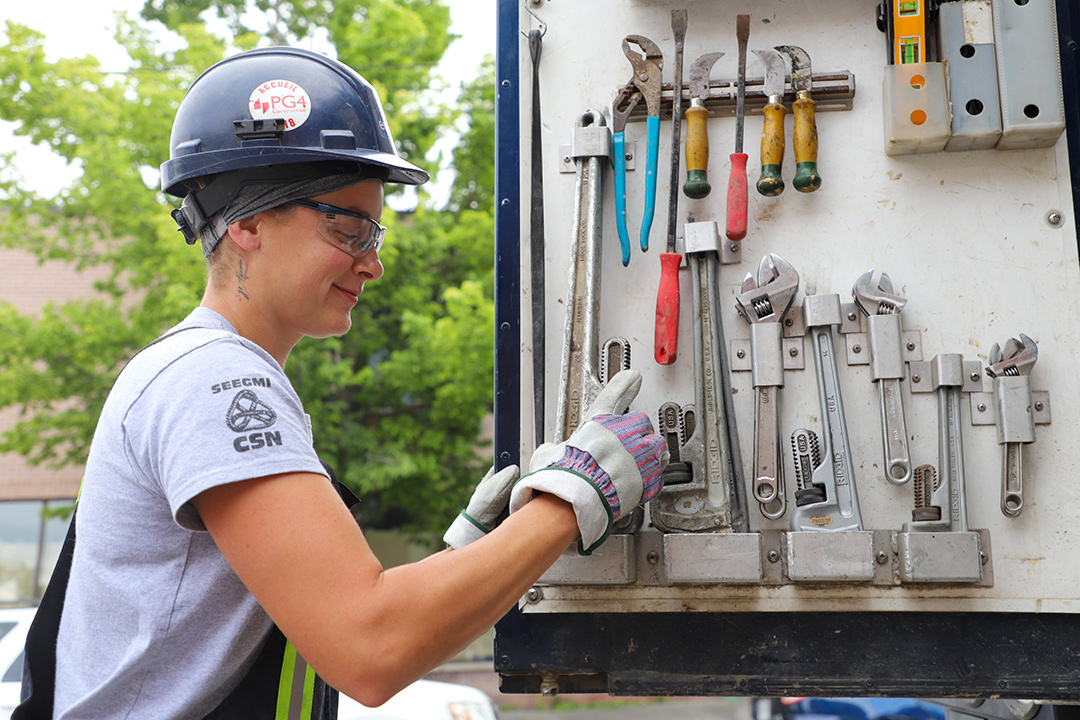 “There is still a long way to go on sites. You have to be mentally strong, independent, you can’t flirt, but you have to develop a positive attitude as equals,” says Karine Boucher.
“There is still a long way to go on sites. You have to be mentally strong, independent, you can’t flirt, but you have to develop a positive attitude as equals,” says Karine Boucher.Today, at 31 years old and mother to a little daughter with her partner, Karine does not regret her choices. “It’s a great trade! My grandmother, a very modern woman, always told me ‘If a man can do it, so can you.’ ” Nevertheless, women will be susceptible to problems until traditionally male-dominated sectors obtain a critical mass of women. For Karine Boucher, the difficulties she faced were mostly in terms of relationships: conflicting work relationships, the constant feeling of working under surveillance, psychological harassment, abusive language, hostile attitudes, and sexism. “Thankfully, there are some major companies, like Énergir, that are paving the way by hiring more women,” she rejoices.
Nevertheless, women will be susceptible to problems until traditionally male-dominated sectors obtain a critical mass of women.
Women in Construction Trades
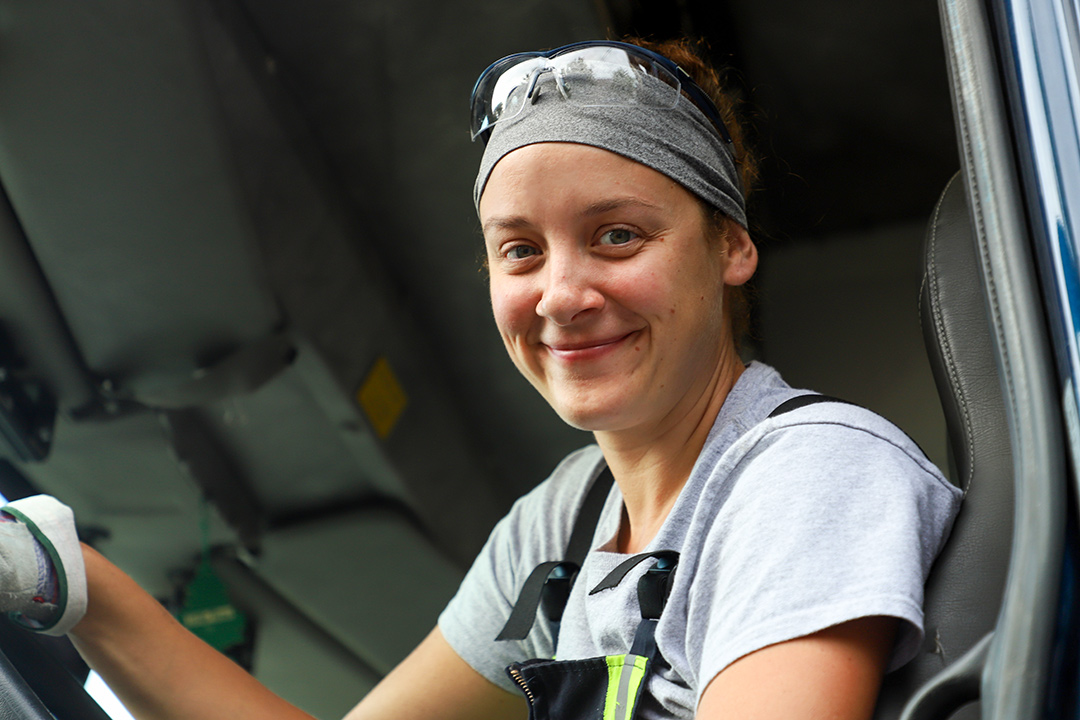 The future? At 31 years old and mother to a little daughter with her partner, Karine does not regret her choices and looks to the future with serenity.
The future? At 31 years old and mother to a little daughter with her partner, Karine does not regret her choices and looks to the future with serenity.While there are more women in vocational and technical training schools, they are still underrepresented in the construction industry. Many women abandon their trade when the time comes for them to carve out a place for themselves in the workplace. “There is still a long way to go on sites. You have to be mentally strong, independent, you can’t flirt, but you have to develop a positive attitude as equals,” says Karine. “It’s not an easy trade. It is physically demanding, and women always have to be just a little bit better.”
Objective: 3%
According to the most recent statistics from the CCQ (Commission de la construction du Québec), the number of women pipefitters – recognized designation for plumber – has almost doubled in the past four years, going from 46 women in 2015 to 86 in 2019. Despite this increase in numbers, the PAEF’s (Programme d’accès à l’égalité des femmes) 2018 target of 2% female pipefitters in the construction industry has not yet been met. The CCQ and construction industry partners will soon present the second stage of the PAEF that will extend until 2024 and aim to support women in their journey, encourage culture change, improve work environments on job sites, and implement actions to counter persistent issues (such as discriminatory practices, harassment, abandonment, discrepancies between men’s and women's career paths, etc.).
(…) the number of women pipefitters – recognized designation for plumber – has almost doubled in the past four years, going from 46 women in 2015 to 86 in 2019.
